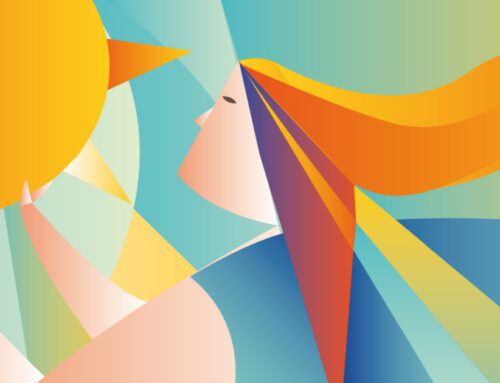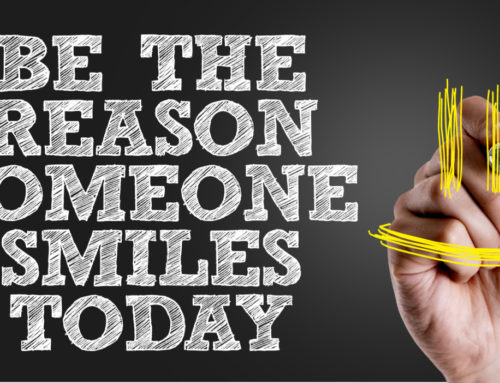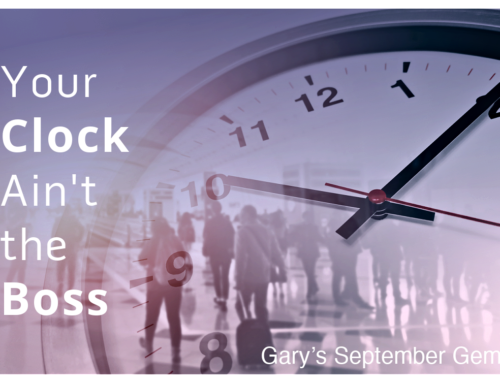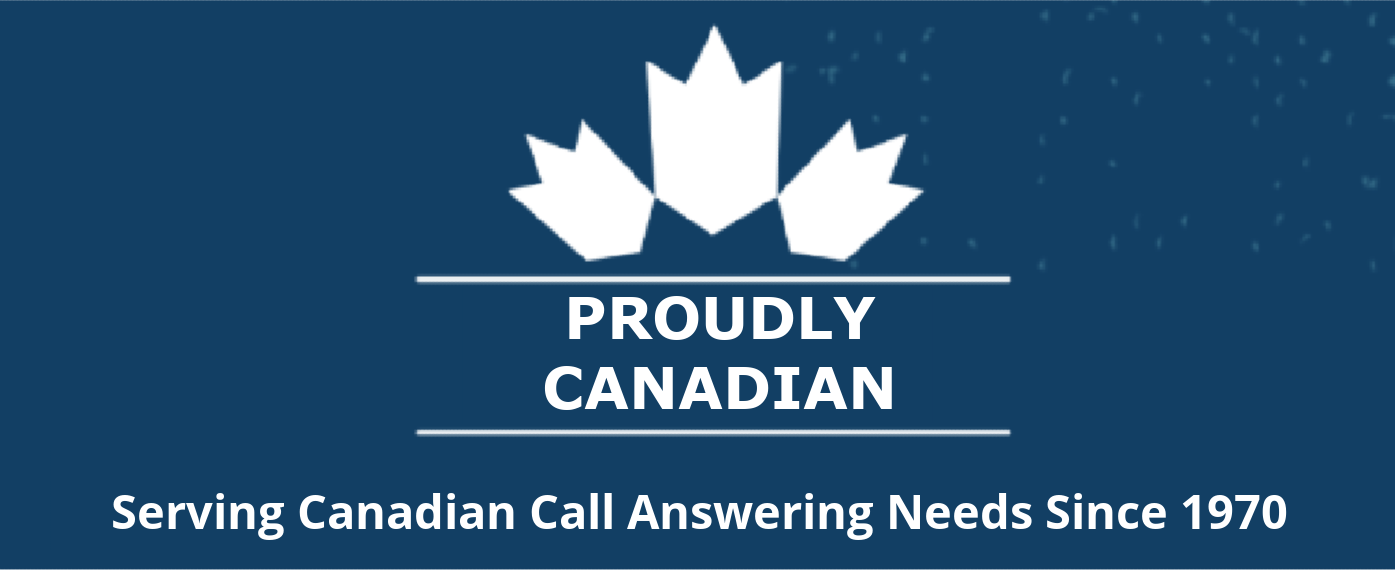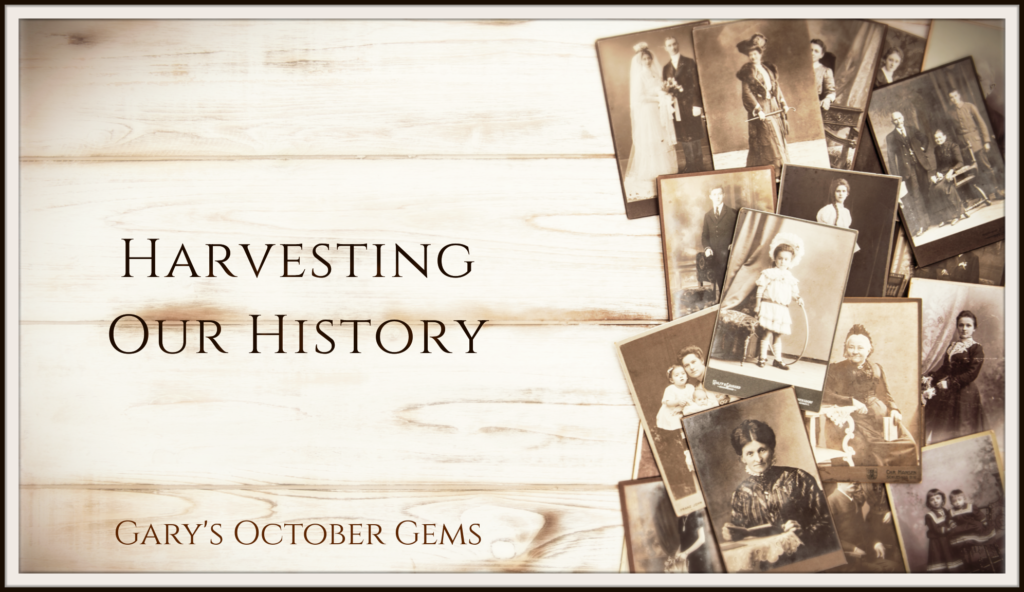
Harvesting Our History From the Gene Pool
I love October. I love the crunch of leaves under my shoes and the amber glow of a tree’s canopy over my head. I much prefer the pleasures of hot chocolate, cozy sweaters, and crisp air to the unpleasantness of humidity, crazy cyclists, and mosquito bites. As farmers are busy harvesting their crops and preparing the soil for the winter, we store away our shorts, Hawaiian shirts and bug spray and fill our closet with hats, coats, and boots.
We’re fortunate to live by a well-known farmer’s market where I spend Saturday mornings strolling back and forth between rows of produce kiosks. Starting in September, they overflow with freshly harvested apples (Honey Crisps are my favourite), squashes of every size and colour and pots of chrysanthemums that decorate our front doors until the first frost.
As I write this, there is a slight chill in the air – a preview of what’s coming. The annual harvest is a tradition that goes back ten thousand years when humans turned from being primarily nomadic hunter/gatherers to farmers. The new stability contributed to creating communities that led to sophisticated city-states. And where there are cities, there are bureaucracies. Taxes was the first item on their to-do list. Where there are taxes, there are records. We can harvest our family histories due to these centuries-old archives and the progress in DNA science.
Before this reads like a university lecture on genetics, let me share a personal story that puts this all in context.
There was a consistent family background story circulating in my family when I was a kid – that my paternal great-grandmother had indigenous bloodlines.
I thought it quite possible due to so much intermingling between early French settlers and indigenous populations back in the day. She was a short, stout woman with dark hair, a dark complexion, and a higher cheekbone structure than what you usually find in northern European ancestry.
Her daughter, my grandmother Florence (Boucher), was similar in height and body type; but she had blonde hair, blue eyes and a “peaches and cream” complexion. On the other hand, my grandmother’s daughter, my aunt Marylin, was much like her grandmother – short, a little less stout, but with dark hair, eyes, and high cheekbones. We just always assumed the indigenous genes skipped a generation. Adding to all this evidence, my grandmother lived on the Indian reserve in Kahnawake for a time. It was never clear why she did, but in my mind, it added credence to the whole indigenous bloodline theory.
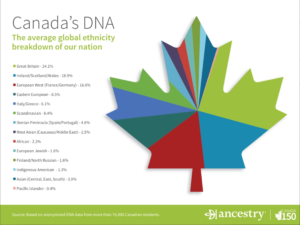
Around five years ago, I, along with my niece, Jordanna and my aunt Marylin, did an Ancestry.ca DNA test. We gathered Boucher, Blair, Whitehead and Caine DNA samples.
Surprise. Not one drop of indigenous blood. Now there may be a smaller Indigenous DNA pool to harvest, and the science is still developing. But we accept the results because there’s also no record of scientists in the family.
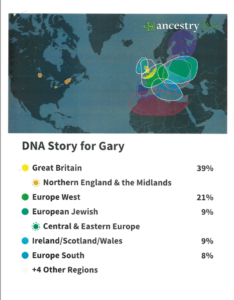
Long before the science of genetic tracing, we learned of our family bloodlines through oral history – stories handed down from generation to generation. It was easier at that time when families lived in the same community, and everyone knew each other’s business.
I regularly watch “Finding Your Roots” on PBS and am astonished every week at how little the guests know about their ancestry. Then I remember the society in which we live. Nuclear families living together are no longer the default housing arrangement. Sadly, our grandfathers and grandmothers are often seen as burdens and not living links to our personal history.
There is an increased interest in digging up our family roots. It opens our eyes to who we are. Discovering more about our ancestors, celebrating our family traditions, embracing our culture, and understanding where we came from opens our eyes to uniqueness. It can also boost our sense of self-worth and belonging.
My husband, Earl, has a first cousin from Toronto who was recently in town to meet up with the remaining family on a quest to gather family stories and memories into a series of memoirs to share with his children, grandchildren and great-grandchildren. Have you ever done an “ancestor” search?
If so, were you surprised by what you discovered?
Or do you think digging around in the past only exposes the skeletons in our family closets?
[click_to_tweet tweet=”Oral history is a recipe for complete misrepresentation because almost no one tells the truth, even when they intend to. – Niall Ferguson” quote=”Oral history is a recipe for complete misrepresentation because almost no one tells the truth, even when they intend to. – Niall Ferguson” theme=”style2″]
[click_to_tweet tweet=”When an old person dies, a whole library disappears.- Simone Schwarz-Bart” quote=”When an old person dies, a whole library disappears.- Simone Schwarz-Bart” theme=”style2″]
[click_to_tweet tweet=”Family, like branches on a tree, we all grow in different directions, but our roots keep us all together. – Author Unknown” quote=”Family, like branches on a tree, we all grow in different directions, but our roots keep us all together. – Author Unknown” theme=”style2″]
[click_to_tweet tweet=”One important part of historical recording is to get people of another generation to understand the feelings, the passion that went into social transformation. That’s why oral history is so valuable. – Alix Kates Shulman” quote=”One important part of historical recording is to get people of another generation to understand the feelings, the passion that went into social transformation. That’s why oral history is so valuable. – Alix Kates Shulman” theme=”style2″]
[click_to_tweet tweet=”A tree’s beauty lies in its branches, but its strength lies in its roots. – Matshona Dhliwayo” quote=”A tree’s beauty lies in its branches, but its strength lies in its roots. – Matshona Dhliwayo” theme=”style2″]
[click_to_tweet tweet=”No wonder oral history turns out to be more accurate than written history. The first is handed down from the many who were present. The second is written by the few who probably weren’t. – Gloria Steinem” quote=”No wonder oral history turns out to be more accurate than written history. The first is handed down from the many who were present. The second is written by the few who probably weren’t. – Gloria Steinem” theme=”style2″]
[click_to_tweet tweet=”We are not who we think you are. We are all harvesters of the seeds planted ages ago. – unknown” quote=”We are not who we think you are. We are all harvesters of the seeds planted ages ago. – unknown” theme=”style1″]
[click_to_tweet tweet=”Good parents give their children roots and wings. Roots to know where home is, wings to fly away and exercise what’s been taught them. – Jonas Salk” quote=”Good parents give their children roots and wings. Roots to know where home is, wings to fly away and exercise what’s been taught them. – Jonas Salk” theme=”style2″]
[click_to_tweet tweet=”If not for oral history, my uncle would not have pursued the history that became the “Roots” project. – Alex Haley” quote=”If not for oral history, my uncle would not have pursued the history that became the “Roots” project. – Alex Haley” theme=”style2″]
[click_to_tweet tweet=”To forget one’s ancestors is to be a brook without a source, a tree without a root. – Proverb” quote=”To forget one’s ancestors is to be a brook without a source, a tree without a root. – Proverb” theme=”style2″]
[click_to_tweet tweet=”Oral history represents a democratization of the history-telling process …having history recorded from on high for us, instead of doing it for ourselves has proven to be a risky business. We need to have history from the bottom up. -Stetson Kennedy” quote=”Oral history represents a democratization of the history-telling process …having history recorded from on high for us, instead of doing it for ourselves has proven to be a risky business. We need to have history from the bottom up. -Stetson Kennedy” theme=”style2″]
[click_to_tweet tweet=”We all carry, inside us, people who came before us. – Liam Callanan” quote=”We all carry, inside us, people who came before us. – Liam Callanan” theme=”style2″]
[click_to_tweet tweet=”All you have to do is listen. – Oral History Centre” quote=”All you have to do is listen. – Oral History Centre” theme=”style2″]
[click_to_tweet tweet=”If we know where we came from, we may better know where to go. If we know who we came from, we may better understand who we are. – Author Unknown” quote=”If we know where we came from, we may better know where to go. If we know who we came from, we may better understand who we are. – Author Unknown” theme=”style2″]
[click_to_tweet tweet=”If you plant crab apples, don’t count on harvesting golden delicious. – Bill Meyer. ” quote=”If you plant crab apples, don’t count on harvesting golden delicious. – Bill Meyer. ” theme=”style2″]
[click_to_tweet tweet=”Happy harvesting begins with careful sowing. – Patrick Mundus.” quote=”Happy harvesting begins with careful sowing. – Patrick Mundus.” theme=”style2″]
[click_to_tweet tweet=”Happiness is having a large, loving, caring, close-knit family in another city. – George Burns” quote=”Happiness is having a large, loving, caring, close-knit family in another city. – George Burns” theme=”style2″]
If you enjoyed this read and don’t want to miss another, check past GEMS and more on our i24 Blog




